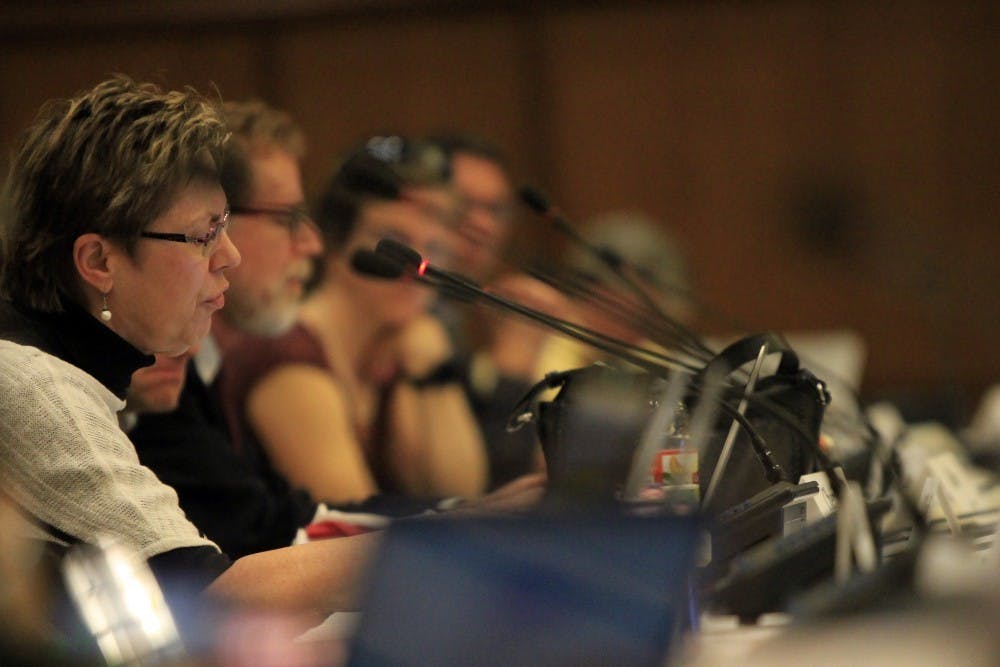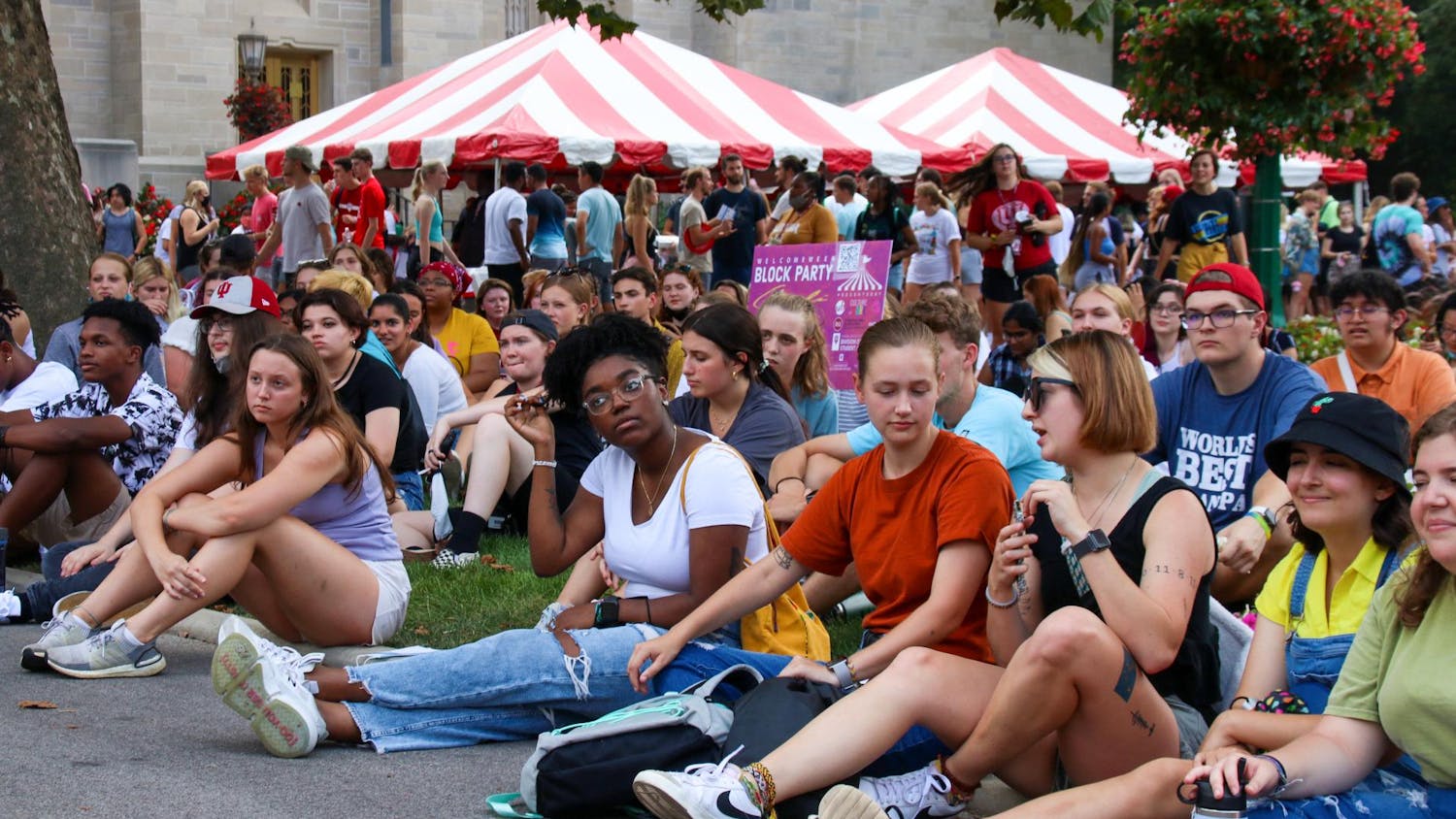The Bloomington Faculty Council covered a lot of ground this semester, including voting to create a third lecturer rank, passing proposals to amend the council’s constitution and beginning to review IU’s general education requirements.
The BFC last met April 17, when outgoing president Alex Tanford handed over the symbolic Tiara of Power and Asterisk of Reality to president-elect Moira Marsh, a subject librarian.
Marsh said she wants to focus on making shared governance of the University between faculty and administrators work, increasing the role of non-tenure-track faculty on the council and continuing to make the council more efficient.
“Bloomington campus is a big ship, and it doesn't turn around on a dime, so BFC is a pretty unwieldy ship too sometimes,” Marsh said. “But I think we're getting a lot more streamlined and a lot more effective."
Here are some highlights from this year’s BFC.
Creation of the third lecturer rank: Teaching Professor
A motion for a third lecturer rank was approved at the March 27 meeting. The new rank was named Teaching Professor at the April 17 meeting, making the progression of lecturer ranks Lecturer, Senior Lecturer and Teaching Professor.
The discussion of creating a third rank, especially including the word professor in the title, was tense. At one meeting, a council member read the Oxford English Dictionary definition of the word professor for North America: “Any teacher at a university.”
At another meeting, Senior Lecturer J. Duncan said a council member was using the language of slavery to describe non-tenure-track faculty.
Marsh said it is one of her goals to continue increasing the role of non-tenure-track faculty on the council by building on the proposals passed this year and creating bylaws that will lead to action in the form of elections.
"They're an increasing part of the faculty,” Marsh said. “They do important work. The University couldn't run without them, so they need to be full partners."
Amendments to the BFC constitution
Fourteen amendments to the BFC’s constitution were proposed, and 11 of the amendments were voted on and approved. The last three were not voted on due to time, but will be addressed when the council meets again in fall 2018.
Many of the proposed amendments make the language of the constitution more generic so that changes do not need to be made as frequently, or so that the constitution can be in line with how the council actually operates.
For example, one section proposed to be amended says the Bloomington provost will report on the state of the campus in the fall, while Provost Lauren Robel gave her state of the campus speech in the spring this year. The amendment would change the section to say the provost will report on the state of the campus at least once a year, not specifying when.
Other proposals came from the Non-Tenure-Track Task Force, focusing on increasing the representation of non-tenure-track faculty on the BFC.
Marsh said she thinks it has been 10 years since the constitution has been amended.
Before the amendments are made to the constitution, they need to be voted on and approved with a majority vote from the full faculty.
General Education requirements
At the March 20 meeting, the BFC discussed an anonymous flier titled “The Black Paper,” which was posted outside the BFC offices and asked why it has taken so long for the BFC to implement a general education course for Diversity in the U.S. in every school at IU.
Outgoing president Alex Tanford said at the end of the last academic year’s BFC meetings, council members assumed the issue would be resolved this year. The resolution was slowed down because it became clear that a broader look at general education policy itself was needed.
“It’s out of date, it’s out of step with what other universities are doing,” Tanford said. “And, it was so ill-defined that we didn’t even quite know what it would do.”
Marsh said general education policy would be a major focus next year.
“We're just hearing from many quarters that it's not working the way we want it, so it's time to have a look and see what's broken,” Marsh said.




